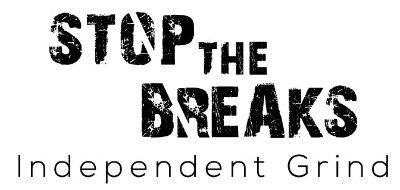
At any stage of your music career, poor financial moves can completely derail your plans.
In addition to financing the start of your music business career, you need to be able to sustain your music as you grow your fan base. When records start selling and revenue grows, you need to be able to keep your cash flow solid so that you can consistently reinvest in yourself to get to the next level. When you do make it big, each decision can have major financial consequences. To manage your finances on your own, you should tale money management classes online.
You need to have proper financial planning for your music business at all stages. Learn some basics below.
Phase 1 – Getting Started
In the beginning, there isn’t much money going around. Everyone knows it takes time to start building an audience large enough from which to generate income. Although confidence is great, too many believe that they can just skid by financially until the money starts rolling in from their music.
The problem with that theory is the music industry rarely works like that anymore (and for very few ever). Making a killer track that gets in front of the “right people” who then make you a star isn’t a real plan. Most of the artist you look up to spent years growing their fan base on their own before anyone really paid attention.
Maybe you have a nice stack of cash to start. You produce your first album which gets great feedback and starts the growth of your fan base. It’s possible you can use the album to generate some income, but real profitability can’t be expected on the first album.
When you do get the “right people” to listen to your tracks, no one says, “Nice, here is $1 million to record another and go on tour.” They say, “Keep it up, and maybe you’ll make it eventually.” They know you still have years of doing the hard ground work of building your core audience before you’re really ready for the big time.
What are you going to do for now? That stack of money you started with would have to be mighty big to be able to finance your music projects and pay the bills for all the years you need to get your music off the ground. If you can’t, then the financial troubles you’ll run into will be a major distraction from focusing on creating and promoting your music.
Financial sustainability is what you need to strive for. This means that you can look 6, 12, 18 months out and be confident that you have the income coming in to cover your expenses over that time.
When I say confident, I don’t mean that you think you’ll have millions coming in via record sales/streams. Once you have brought in millions and can prove that you can repeatedly do so, then you can be confident millions will be coming in in the future. You always need to be realistic.
Phase 2 – The Growth
Let’s say you created financial sustainability early in your career. Your first release made some noise online and got some good PR. You are doing all the right things, including networking with some impressive people. Because you had a financial plan, you had enough money to keep promoting yourself and are ready to get in the studio again.
Things start snowballing and the reputation you built on the first album allows you to feature a few special guest DJ’s and rappers on your next record. Your email list and social accounts are growing too fast to keep track of new individuals.
You have listeners other than people you messaged directly on Twitter or someone you met at a party and personally asked to look you up on Spotify. Your strong network gets you some primo gigs. Maybe you even get a spot as an opening act on a tour.
It’s not the time to get cocky. You’re just starting to grow. But because you have a small following of real fans, you can start to monetize them in various ways like selling your music, merchandise, Patreon, or one of the numerous other ways of developing income.
With more income comes more responsibility (“Mo money, mo problems”).
You don’t just get to spend it. It’s important to keep in mind you haven’t “made it” when some money starts rolling in. Thinking you “made it” can kill your ambition and the frugality mindset of the starving artists that helped you get this far.
But now you aren’t following the same plan as when you started. Now that you have income from your art, you need to figure out what to do with it. It’s easy to just take the first $10K you made from your 2nd album and merch and reward yourself. But you need to act like a businessman.
Financially, you need a realistic projection of your money. It’s great that you had some success, but is that income from this month going to be here the next? You need to go back and understand your goal. Is just to make it this far? OR keep going until you really dominate the industry and can sell out the biggest clubs with thousands screaming your name?
Your financial strategy is still going to focus on the Financially Sustainability talked about above, but it will look a little different. Sustainable income is more likely to be derived from sources related to your music and brand instead of being generated from outside sources.
You also have many more options on ways to reinvest in your brand to generate more income. That’s part of the more “Mo Money Mo Problems”.
Phase 3 – Established
BOOM – Big tours, big money, offers from producers to work on your next album, more contacts from mangers than you can reply to, collaboration requests from other artists you admire. Getting from the growth part of your career to the fully established artist happens quickly. But that doesn’t mean it gets easier, it’s just going to be different.
You’re no longer the one sending out the messages on Twitter asking for people to check out your SoundCloud. You have developed a team helping you manage various parts of your music business. But your cash flow is still up to you, and it’s still just as easy to completely blow it.
When you have a team working on your merch, a manager, producers, studio time, live shows, and other business expenses; shit gets expensive. Even without increasing your life style to match your success you are going to be spending huge chunks of the money you see coming in on business expenses.
We often hear about major recording artists having bankruptcy issues. From Ted Nudget to 50 cent, many highly paid artists have lost all of their money and more. Why? They didn’t have financial sustainability at this later stage of their career.
Once you get to the point of making serious income it’s easy to start over spending it. It may seem like there is no way you can run out of money when so much keeps rolling in through the door, but we have plenty of tabloid news sources sharing the stories of celebrities going broke to prove it’s not that hard to do.
This is the point in a career where losing financial sustainability is more likely to happen because of overspending rather than lack of income.
Also, when the income is higher there are more ways to get into bigger financial trouble. When you only make $50,000 in a year it’s hard to get yourself in trouble to the tune of millions. Once big money starts coming in you’ll find plenty of ways to spend it, people to help you spend it, and worst of all, people willing to lend you money so you can spend even more.
That, along with lawsuits from other transgressions, helped 50 Cent find himself unable to repay over $30 million of debt.
Don’t become a tabloid news disaster by losing focus on your finances. If you pay attention and fall in love with the financial process of taking care of your money and business (what got you here in the first place), then you can keep growing your money and get JAY Z type PR vs 50 Cent PR.
Getting help?
Some people might think that once you start making big money it would be easier to keep away from financial difficulties because of the businessmen that will be around the artist. This is a fallacy about the help you get.
First, who are you going to have help you? Both the music industry and financial industry are known for their three-piece suit high roller business sharks, whether it be a band manager, investment manager, or insurance salesmen.
They didn’t get to the top because they cared about people or the music. It’s most often because they found the best way to extract financial gains from artists that may or may not leave the artists in a financially sustainable situation.
The best way to protect yourself is to get your financial strategy in order before you “make it”. Understand the industry and connect with people you can trust early, so that when you make it you can continue to rely on those who helped you get there, not some slick salesmen that was just chasing the money.
Even 5 years ago, it used to be extremely difficult to get good and honest financial planning advice without having millions in the bank (and even then, it was still really tough to find). Recently some financial revolutions have come about, and now you can obtain real financial planning advice for a fraction of the cost of a business manager or typical accountant.
There is no excuse for not having all your financial bases covered from the start. This will allow you to make the right moves at every stage of your career.
Financial sustainability
The best way to be prepared is to do the research yourself. You don’t have to learn everything about financial strategies for musicians, but enough to understand how to get help from the right people and keep up with your financial plan.
This is a guest post by Kyle Buffo, owner of Americana Financial Planning. For more information on creating financial sustainability, artists can download the free eBook, The Financially Successful Musician. This book covers the basics of financial cash flow as a musician and how to create a sound financial strategy as you develop as a musician.




